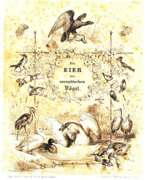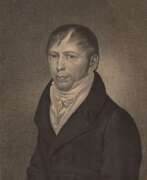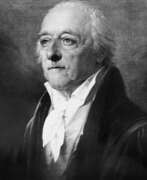Pharmacists 19th century


Friedrich Baedeker, full name Friedrich Wilhelm Justus Baedeker or F. W. J. Baedeker, was a German pharmacist, bird egg collector and bird illustrator.
In addition to his work as a pharmacist, Baedeker had a passion for ornithology and was a good artist. His 774 watercolors are known, depicting some 386 European birds. In time, Baedeker became widely known as an ornithologist and zoologist, and his huge collection included about 4,000 eggs of various European and exotic birds.
Baedeker joined the Deutsche Ornithologen-Gesellschaft (German Society of Ornithologists) in 1851, shortly after its founding, and published several books on birds. One of these was Die Eier der europaeischen Voegel nach der Natur gemalt ("The Eggs of European Birds Drawn from Nature").


Friedrich Gottlob Hayne was a German botanist, taxonomist, pharmacist and professor.
After many years of teaching, he was appointed Professor of Pharmaceutical Botany in 1828. In addition to his lecturing duties he led many botanical excursions. He was known for using precise terminology in his plant descriptions.


Nikolaus von Jacquin, full name Nikolaus Joseph Freiherr von Jacquin, also Baron Nikolaus von Jacquin, was an Austrian and Dutch scientist, professor of chemistry and botany, and director of the Vienna Botanical Garden.
Jacquin is considered a pioneer of scientific botany in Austria. He wrote fundamental works in botany, was the first to describe many plants, fungi, and animals, introduced experimental methods in chemistry, and successfully campaigned for the introduction of Linnaeus' system of plants in Austria. On behalf of Emperor Franz I, von Jacquin was in charge of the imperial gardens (including Schoenbrunn) and also led a scientific expedition to Central America from 1754 to 1759, from which he returned with an extensive collection of plants.
In 1768, Nikolaus von Jacquin was appointed professor of botany and chemistry at the Faculty of Medicine of the University of Vienna and director of the newly founded botanical garden, which he reorganized according to scientific principles. Nikolaus von Jacquin was a member of the Royal Society of London, a foreign honorary member of the St. Petersburg Academy of Sciences, and a correspondent of the Paris Academy of Sciences.